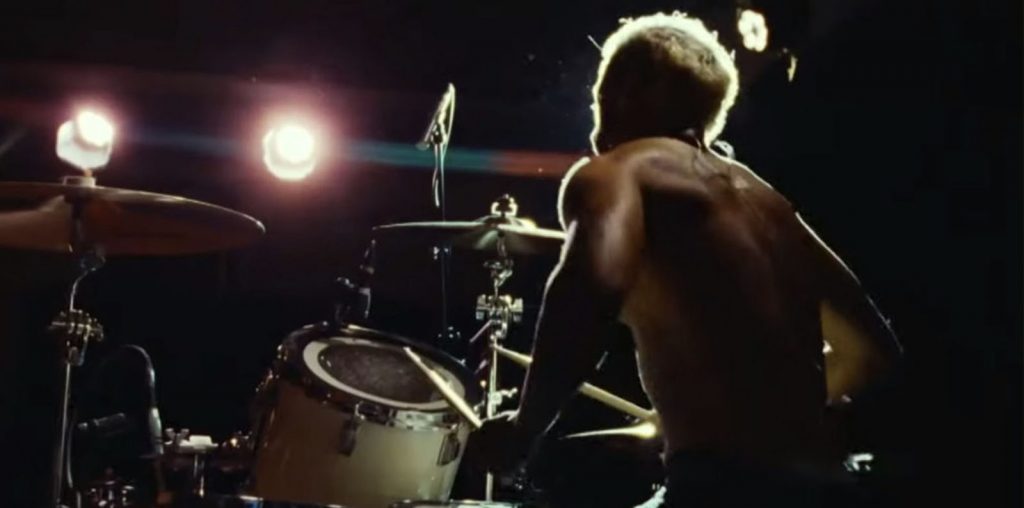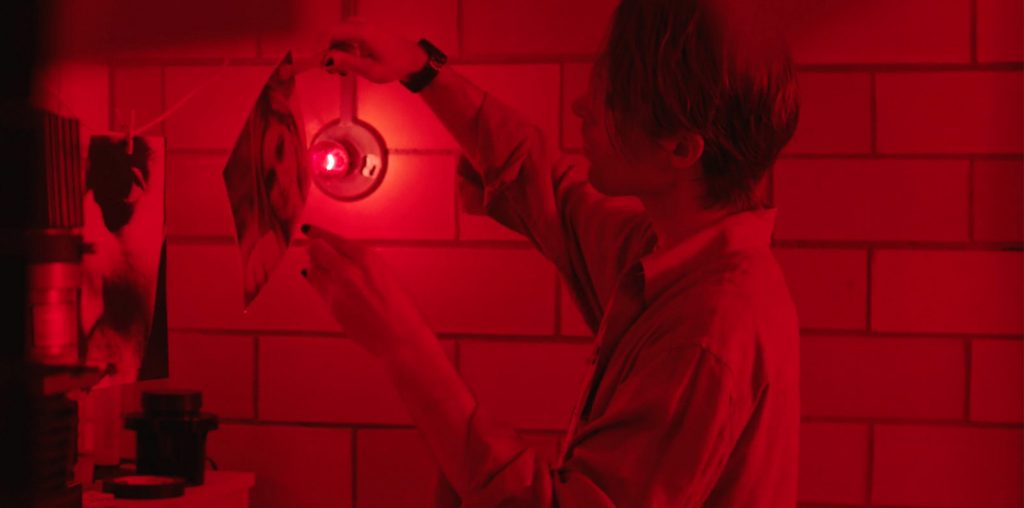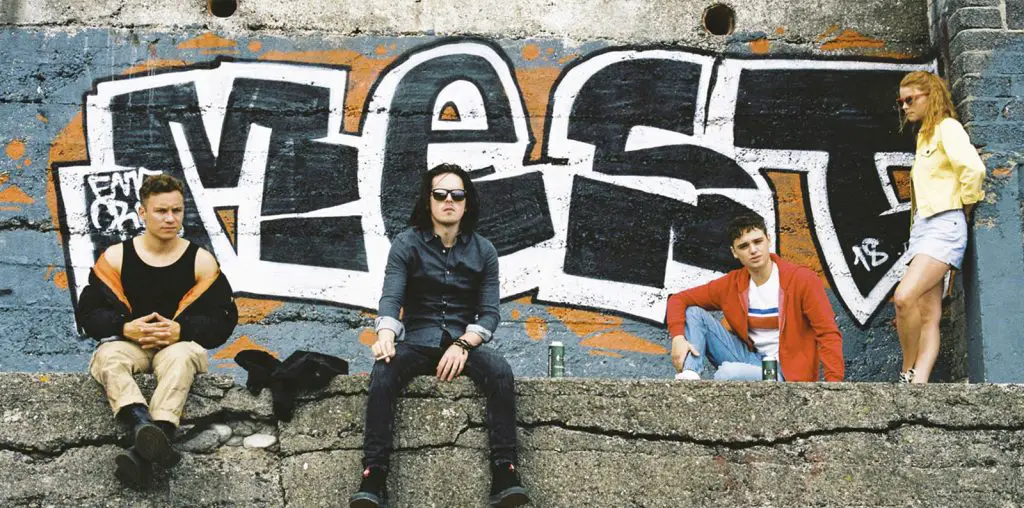
The key art and title of Esteban Arango’s Blast Beat suggest a cinematic assault on the senses, all-metal music and teenage angst. While the two protagonists certainly imbue the feature with a rebellious streak, ultimately, it is a gentle coming-of-age story of a young man reaching for the stars (quite literally). That it also happens to be a rather astute study of the immigrant experience is an added bonus.
Set against the backdrop of political unrest in Bogotá, Colombia in 1999, the film follows brothers Mateo and Carly (real-life brothers Moises and Mateo Arias) through their turbulent lives – specifically, as they, along with their mom (Diane Guerrero), prepare to leave home and reunite with their dad (Wilmer Valderrama) in America.
A metal-head, pro-biker, and science prodigy, Carly has no qualms about leaving his girlfriend behind, eager to pursue a career at NASA. In fact, he can’t wait. Mateo, the younger sibling, is a troublemaker, vandalizing the streets with graffiti, beating up cops, and exploding dollhouses. He’s not nearly as ecstatic about leaving his best friend, his home, his life. He regards his brother’s ambition with cynicism, even breaking Carly’s precious solar panels in a fit of adolescent fury.
The boys go through the motions of fitting in once they move to Atlanta, GA, and begin attending the local school. Carly gets busy pursuing the American Dream: he meets a girl, sneaks his way into a university lecture, befriends, and consequently betrays a professor (Daniel Dae Kim). In the meantime, Mateo is ostracized, cheats on his girlfriend, and gets arrested for destroying someone’s car with a baseball bat.
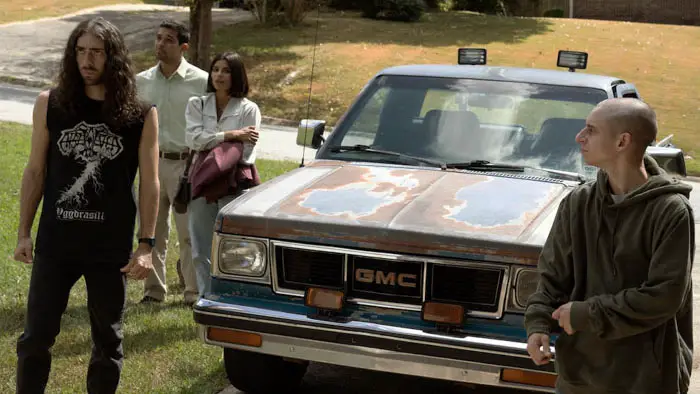
“The boys go through the motions of fitting in once they move to Atlanta…”
Arango, who also co-wrote the film with Erick Castrillon, is wise enough not to leave things on a conventional “happily ever after” note. Life goes on for these flawed characters, and things aren’t exactly rosy, but hope floats. The story feels deeply personal, and whether or not the filmmaker experienced these ordeals himself, the trials and tribulations of the central family feel painfully real. The period setting adds some flavor to the proceedings. First and foremost, however, Blast Beat is about the perils of being a teenager: the pleasures of finding friends, the sorrow of leaving them behind, the fear of not being accepted by both peers and coveted universities.
Some scenes feel a bit rushed like they needed a second draft, or perhaps another take. For example, Mateo not fitting in at school is portrayed in the broadest of strokes, kids instantly chastising him for his accent and looks and labeling him as “not cool” after he calls them out on their ignorance. Carly’s budding relationship with an American girl, on the other hand, feels natural and genuine… until it’s just left unfinished.
Thankfully, the filmmaker nails the ups and downs of a sibling relationship – largely thanks to the two charismatic leads, whose bond feels authentic. Mateo Arias may be the “hero” of this story, but Moises Arias casts the bigger impression as the explosive Mateo, his intensity bringing to mind a young Edward Norton. While Valderrama and Guerrero become a bit lost in the drama of it all, Daniel Dae Kim, who also executive produced the film, shines as the generous professor.
Blast Beat wins you over with earnestness, as opposed to the anticipated controversy, though it could’ve used a bit more bite. Also, ignore the confusing title. Whether you’ll have a blast with this beat has nothing to do with your affinity for metal music and everything to do with your tolerance for “heart-on-the-sleeve” independent filmmaking.
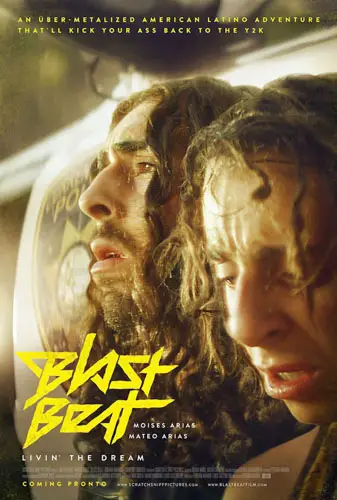
"…wins you over with earnestness..."
